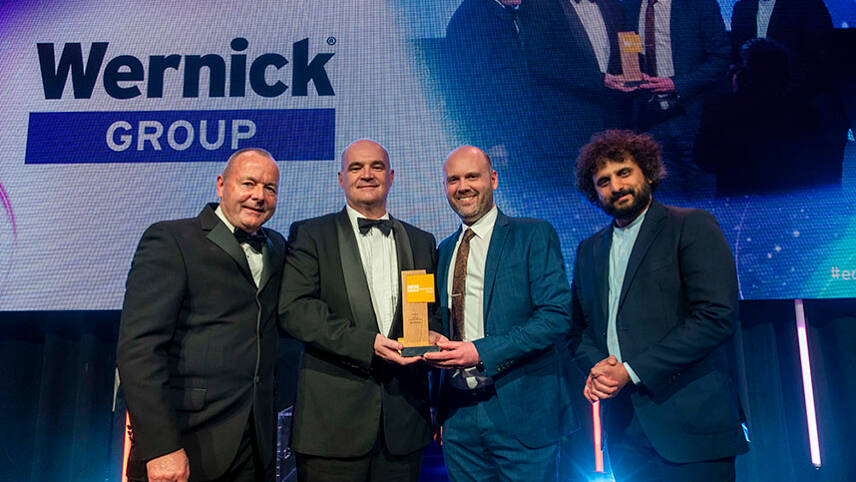This premium content is exclusive to edie Members.
To find out more about edie Membership, please click below.
If you are an existing member, login here

At a glance:
Who: Wernick Group
What: Award-winning corporate net-zero strategy
Where: The Group has multiple offices across the UK
When: 2040 net-zero commitment launched in early 2022
Why: Decarbonising more rapidly than the UK Government’s legally binding 2050 target
The Challenge:
Businesses in the UK are bound by the national Government’s legally binding 2050 net-zero emissions target. Ministers have not yet produced sector-specific, time-bound targets to bolster its long-term goal.
Many firms of various sectors and sizes are setting net-zero targets ahead of this goal, with UK Plc leading the way in the adoption of emissions targets verified by the Science-Based Targets initiative (SBTi). But concerns persist around whether targets are credible and, perhaps to a greater extent, whether businesses are properly preparing to make the necessary changes to deliver deep decarbonisation.
Transition planning can address this, but very few businesses are moving ahead of a delayed UK mandate, and most of the early adopters are still not disclosing key details.
The Solution:
An industry-leading Carbon Management Plan from Wernick Group, backing up the firm’s long-term (2040) net-zero target with time-bound interim goals and detailed plans for delivery, including investments in new technologies, changes to processes and upskilling.
The Plan takes a phased approach, focusing on the business areas with the highest emissions first. It sets out 22 actions from those which can be “transformational” in the near term to those requiring early groundwork for acceleration in the years to come. These actions cover the business’s estate, fleet, supply chain and products and services.
The Plan is designed to be accessible to staff, suppliers and other key external stakeholders.
How it works:
Following an early commitment to net-zero from the Board of Directors, Wernick Group joined the public Pledge to Net-Zero Campaign and its staff began the behind-the-scenes work of measuring baseline emissions to develop the Carbon Management Plan and an application to the SBTi. It appointed its first Group Sustainability Manager, Alexis Massey, to oversee this major undertaking.
Once up-to-date Scope 1 and 2 emissions data was captured, giving a baseline and a view of priority action areas, Massey and the team consulted with a committee of staff from other parts of the business plus external stakeholders to identify the most feasible and impactful actions for the coming years.
These included digital optimisation of existing onsite solar and energy efficiency technologies; changing factory layouts to boost energy efficiency; rolling out LED lighting; electrifying forklift tricks; shifting to paperless invoicing and improving waste management practices.
The Group also baselined its Scope 3 emissions for the first time in 2022, covering waste, water, commuting, business travel and logistics transport. Calculations for purchased goods and services are in the pipeline. The Group has collaborated with suppliers to draw up new carbon reduction clauses and enhanced data disclosure requirements which will not burden SME suppliers.
Wernick Group has partnered with a range of suppliers to leverage low-carbon solutions and is also working collaboratively with partners like Swansea University.
The results:
The Group has already re-assessed its existing factory layouts to improve efficiencies, reaping a 110,000kWh reduction in energy use within a year. It has also introduced new low-carbon minimum standards for new facilities, including a requirement for offices to have an EPC ‘A’ rating.
These changes feed into a new energy management hierarchy approach, prioritising energy elimination and reduction over self-generation, and positioning self-generation as more credible than indirect green energy procurement.
These efforts, plus programmes relating to other emissions ‘hot spots’ across operations and the wider value chain, have resulted in a 41-tonne reduction in the Group’s annual CO2e footprint.
The Judges said:
“Wernick Group has demonstrated initiative and drive, going above and beyond its peers on net-zero strategising. Its 2040 net-zero target is supported by a clear roadmap that has already resulted in notable emissions reductions.”
© Faversham House Ltd 2024 edie news articles may be copied or forwarded for individual use only. No other reproduction or distribution is permitted without prior written consent.

